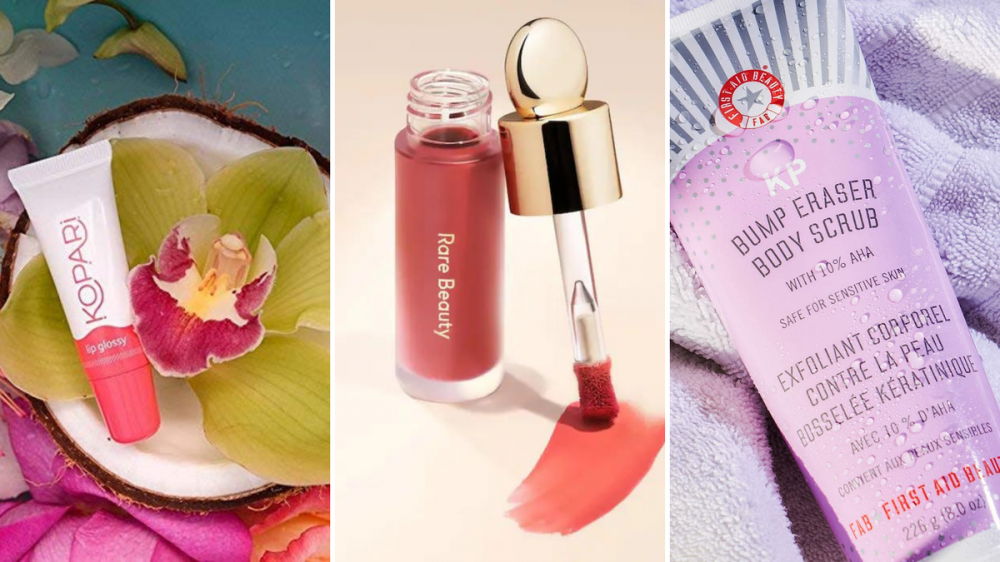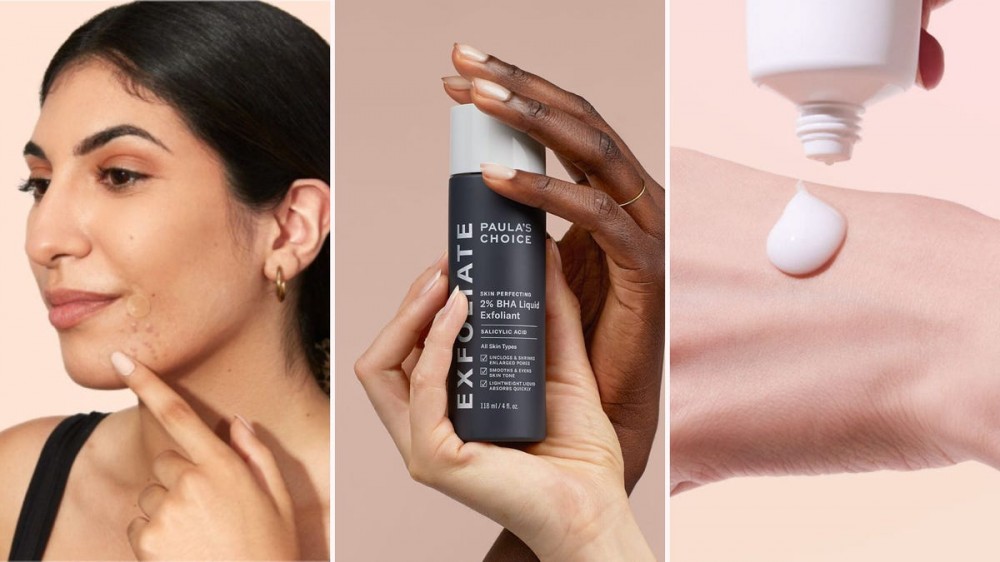
If you’ve ever struggled with acne, you’ve probably heard the theory that cutting back on consuming dairy products can help get your skin clear. In reality, the relationship between dairy and your skin is probably more complicated than that.
We spoke with Kendra Joseph, PA-C at Schweiger Dermatology Group in New York City, to get the facts on how dairy does (and doesn’t) affect your skin. Here’s what she says about the link between dairy and acne—and how you can treat blemishes, no matter what the cause.
Does Dairy Really Cause Acne?
Can Dairy Have Other Effects on the Skin?
Can You Tell If Your Breakout Is Due to Acne?
How to Treat Acne Caused by Dairy
Does Dairy Really Cause Acne?
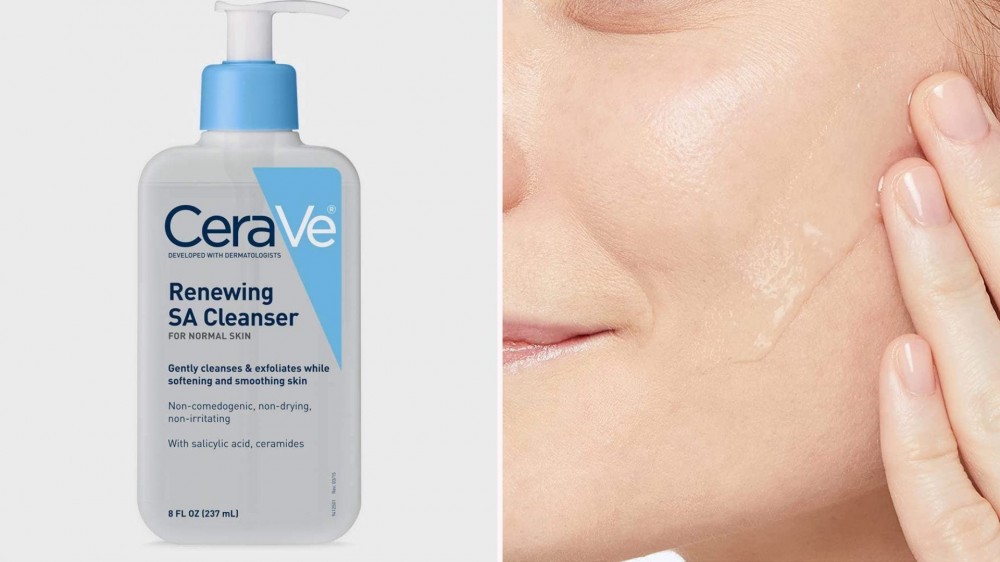
For years, skincare experts and amateurs alike have debated whether dairy really can be the culprit for stubborn acne, or whether it’s just a myth. According to Joseph, the science right now has shown mixed results. One 2018 study found that consuming dairy was associated with a higher likelihood of acne in people aged 7 to 30, but another analysis in 2019 showed no association between dairy and acne.
“We know even with these mixed conclusions, there appears to be some link or association. However, association is different from causation,” said Joseph. “We can’t say ‘dairy causes acne.’ If this were true, everyone who consumes dairy would have acne, and this is not the case. However, dairy has been reported by some people as a worsening factor for their acne. More research is needed.”
So what’s the potential cause for a link between dairy and acne? Joseph explained that there are a couple of potential culprits. One is the presence of proteins such as whey and casein, which can have a cascading effect leading to increased inflammation in the body. Since acne is an inflammatory problem, the two could be linked. Joseph also notes that dairy products can contain androgen hormones, which, in excess, can lead to excess sebum production—a common source of breakouts.
Can Dairy Have Other Effects on the Skin?
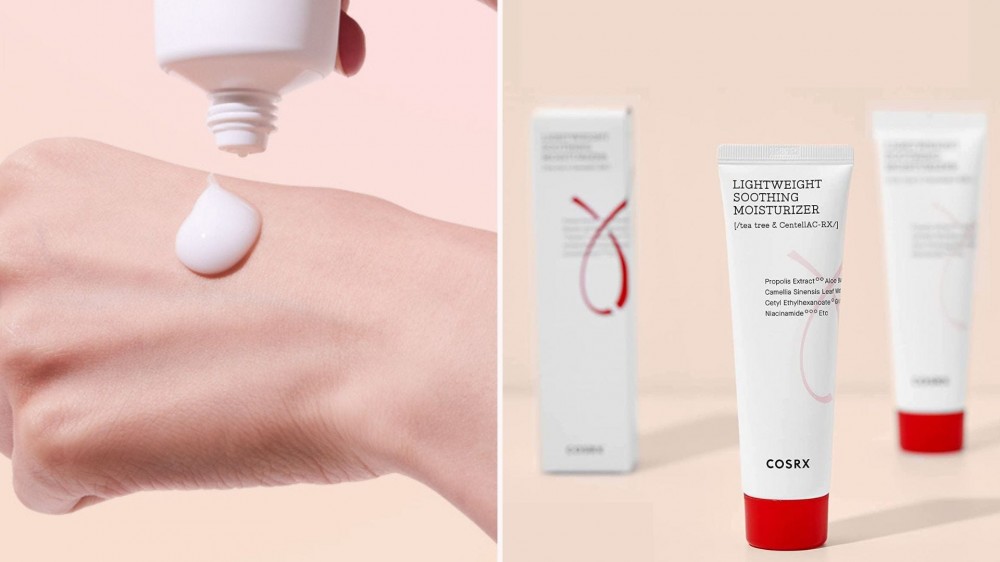
As Joseph explained, dairy by itself may not have a significant impact on your skin. However, as with any product, it’s important to keep an eye on how the body reacts to consuming it and adjust accordingly if needed.
“If one notices that upon consuming dairy that skin conditions worsen, it would be prudent to consider reducing that food,” said Joseph. “In terms of other skin conditions outside of acne, if one has a true dairy allergy, hives along with itching and other symptoms could occur once dairy is consumed.”
For those whose skin does seem to break out when excess dairy is consumed, it’s also worth paying attention to see if it’s a particular kind of product (ie milk, yogurt, cheese, etc.) that seems to correlate or if it’s all dairy. While any dairy product could, in theory, lead to a breakout, Joseph said that cows’ milk and skim milk seem to have had the strongest associations so far.
Can You Tell If Your Breakout Is Due to Acne?
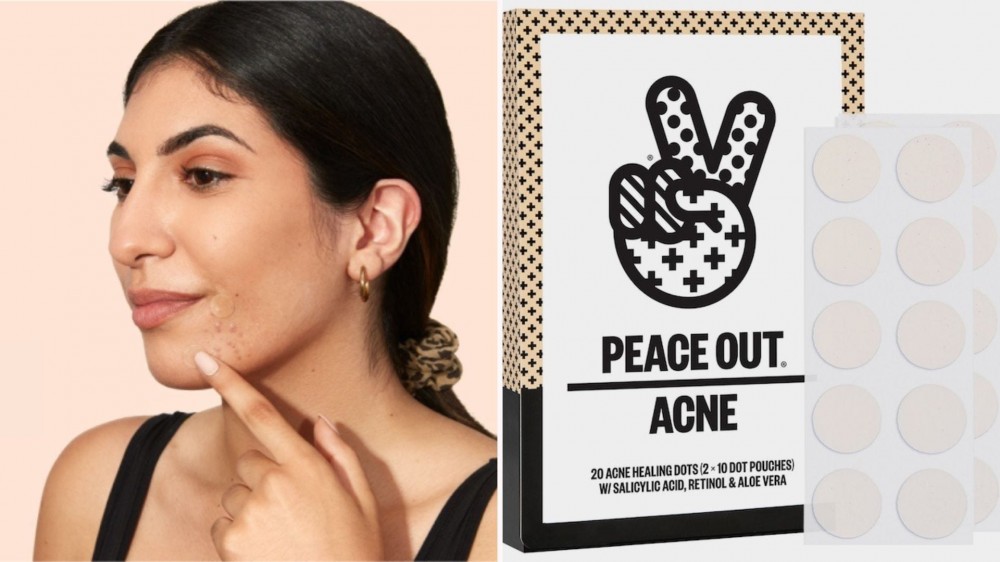
Even if you suspect dairy might be behind your breakouts, Joseph said that it can be hard to pinpoint.
“It is very difficult to tell just by looking at your skin if your breakouts are solely due to dairy, as there are many contributing factors that may produce the same type of breakouts: stress, genetics, comedogenic products, etc.,” said Joseph.
With that being said, however, Joseph said that certain types of acne may be more likely to indicate dairy as the culprit. Because of the hormonal connection described above, hormonal cystic acne is one type of acne that may be more likely than other types to have dairy as a cause. This kind of acne is typically characterized by large, deep, and painful breakouts along the jawline and lower portion of the face.
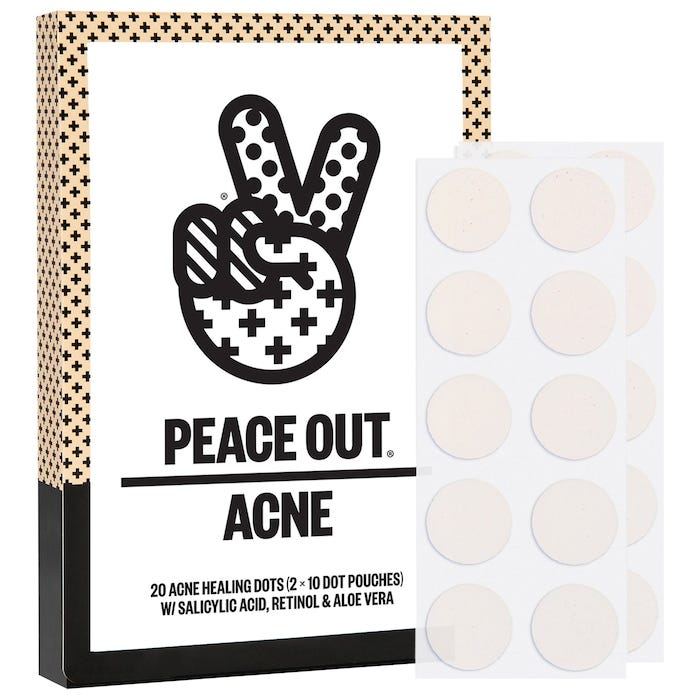
Peace Out Salicylic Acid Acne Healing Dots
Soothe and treat acne with these healing patches.
How to Treat Acne Caused by Dairy
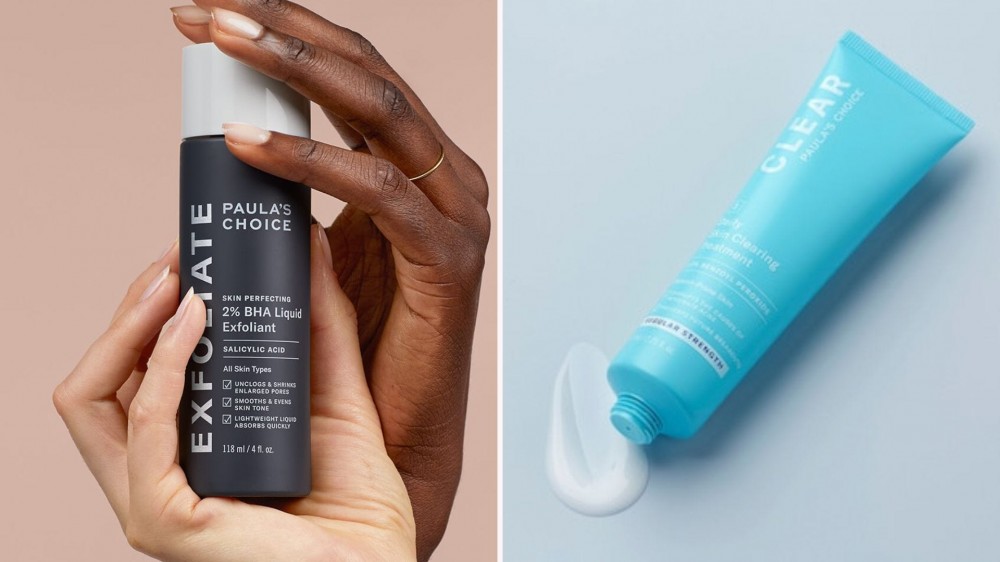
Understanding the cause of acne is great, but you’re probably most concerned with the bigger problem: treating it. According to Joseph, the first step to treating dairy-caused acne is prevention.
“The simple at home test [to see if dairy is worsening your acne] would be to remove dairy products from your diet and see if there is a reduction in your acne breakouts,” she said.
Even if reducing or eliminating dairy does seem to help your breakouts, Joseph said that it can be hard to confirm the dairy is the actual culprit. Many dairy products also have a high glycemic index (that is, sugary content), which also can be linked to acne. Of coure, care should always be taken when making dietary changes to ensure you’re getting the best nutrition.
To treat the actual breakouts, over-the-counter skincare products containing sulfur or benzoyl peroxide can be a big help, according to Joseph. Most of these are topical creams or gels, like the Paula’s Choice CLEAR Daily Skin Clearing Treatment, which has a 2.5% concentration of benzoyl peroxide.
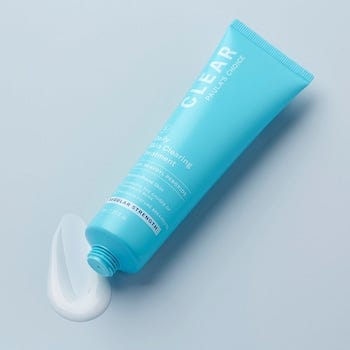
Paula’s Choice CLEAR Daily Skin Clearing Treatment with 2.5% Benzoyl Peroxide
Benzoyl peroxide can treat even stubborn acne.
Joseph also suggested exfoliating agents, such as salicylic acid, to keep the pores from getting clogged. A product like the Paula’s Choice Skin Perfecting 2% BHA Liquid Exfoliant includes green tea for calming irritated skin. Plus, it’s gluten-free, cruelty-free, and free from several common toxic ingredients like parabens, sulfates, and phthalates.
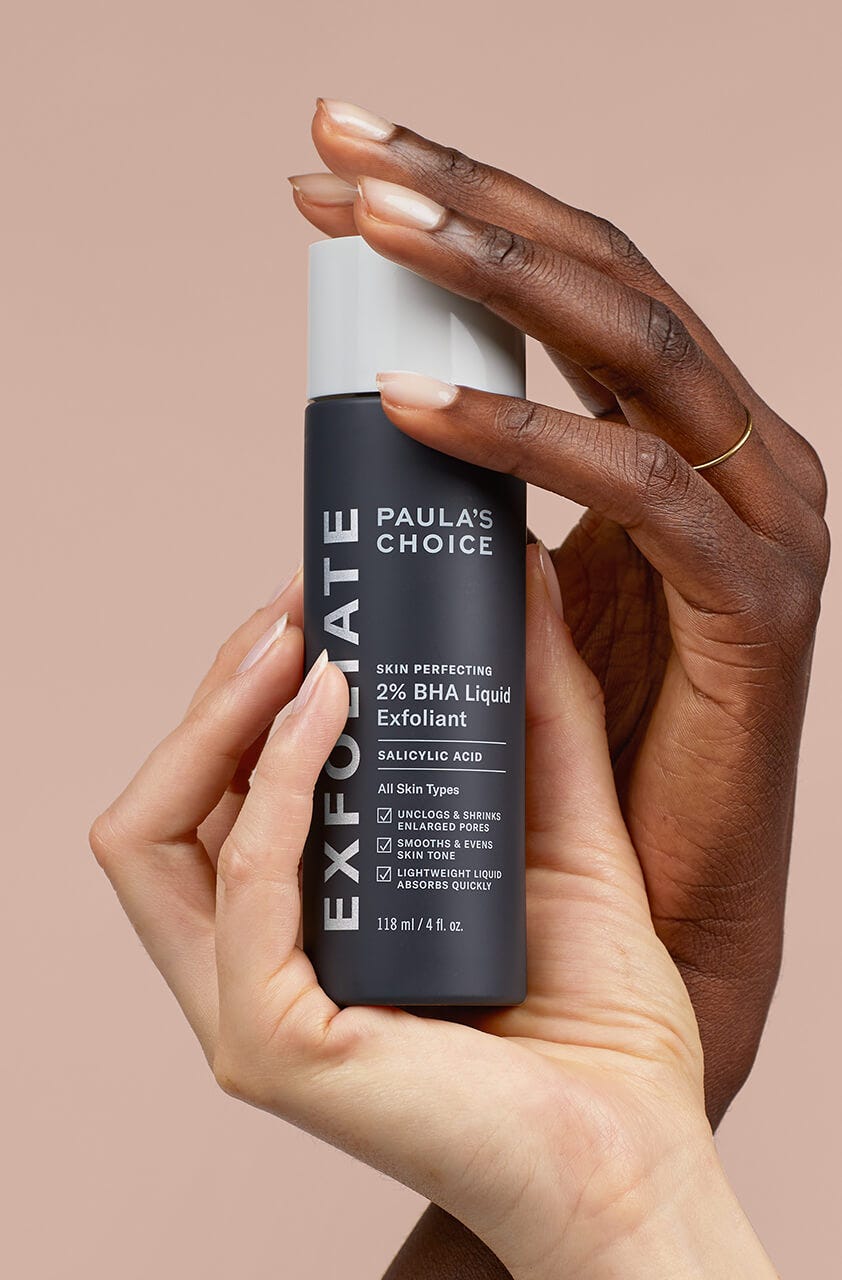
Paula’s Choice Skin Perfecting 2% BHA Liquid Exfoliant
Liquid exfoliant to combat breakouts.
“If these are not helpful or too irritating, it’s best to see a medical skincare clinician who can tailor a plan to combat your acne!” Joseph said.
When you have acne-prone and sensitive skin, it’s important to explore different possibilities and treatments. These tips can help you discern if dairy is affecting your breakouts, while helping treat the acne regardless of the source.






